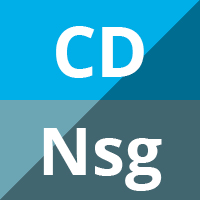
Edaravone for acute intracerebral haemorrhage
Abstract Background Intracerebral haemorrhage (ICH) causes significant morbidity and mortality. Prognosis for ICH patients is poor. Edaravone may be safe and effective in reducing the risk of early death and improving long-term functional outcomes in survivors. Objectives To assess the safety and efficacy of edaravone for acute ICH. Search methods We searched the Cochrane Stroke […]

Anticoagulants for preventing recurrence following presumed non-cardioembolic ischaemic stroke or transient ischaemic attack
Abstract Background After a first ischaemic stroke, further vascular events due to thromboembolism are common and often fatal. Anticoagulants could potentially reduce the risk of such events, but any benefits could be offset by an increased risk of fatal or disabling haemorrhages. Objectives To assess the effect of prolonged anticoagulant therapy compared with placebo or […]

Surgery for primary supratentorial intracerebral haemorrhage
Abstract Background There is considerable international variation in the rate and indications of surgery for primary supratentorial intracerebral haematoma, reflecting the uncertainty about the effects of surgery. Recently, some large randomised trials have appeared in the literature but the controversy over its role continues. This is an update of a Cochrane review first published in […]

Mannitol for acute stroke
Abstract Background Mannitol is an osmotic agent and a free radical scavenger which might decrease oedema and tissue damage in stroke. Objectives To test whether treatment with mannitol reduces short and long-term case fatality and dependency after acute ischaemic stroke or intracerebral haemorrhage (ICH). Search methods We searched the Cochrane Stroke Group Trials Register (searched […]

Acupuncture for acute stroke
Abstract Background Acupuncture-like sensory stimulation activates multiple efferent (nerve) pathways leading to altered activity in numerous neural systems. Acupuncture is widely accepted by Chinese people and it is increasingly requested by patients and their relatives in Western countries. Objectives To assess the effectiveness and safety of acupuncture in patients with acute stroke. Search methods We […]

Glycerol for acute stroke
Abstract Background Brain oedema is a major cause of early death after stroke. A 10% solution of glycerol is a hyperosmolar agent that is claimed to reduce brain oedema. Objectives To determine whether intravenous glycerol treatment in acute stroke, either ischaemic or haemorrhagic, influences death rates and functional outcome in the short or long term, […]

Excitatory amino acid antagonists for acute stroke
Abstract Background Focal cerebral ischaemia causes release of excitatory amino acid (EAA) neurotransmitters, principally glutamate, with resultant over-stimulation of EAA receptors and downstream pathways. Excess glutamate release is a pivotal event in the evolution of irreversible ischaemic damage in animal models of ischaemia, and drugs that modulate glutamate action either by inhibiting its release, or […]

Fibrinolytic therapy for intraventricular hemorrhage in adults
Abstract Background Spontaneous or secondary intraventricular hemorrhage is a marker of poor prognosis for hemorrhagic stroke. It can cause hydrocephalus and require ventricular shunt placement, result in permanent neurological deficits or death. Fibrinolytic agents injected into the ventricular system could dissolve blood clots, increase the clearance of blood from the ventricles and hence improve outcome. […]

